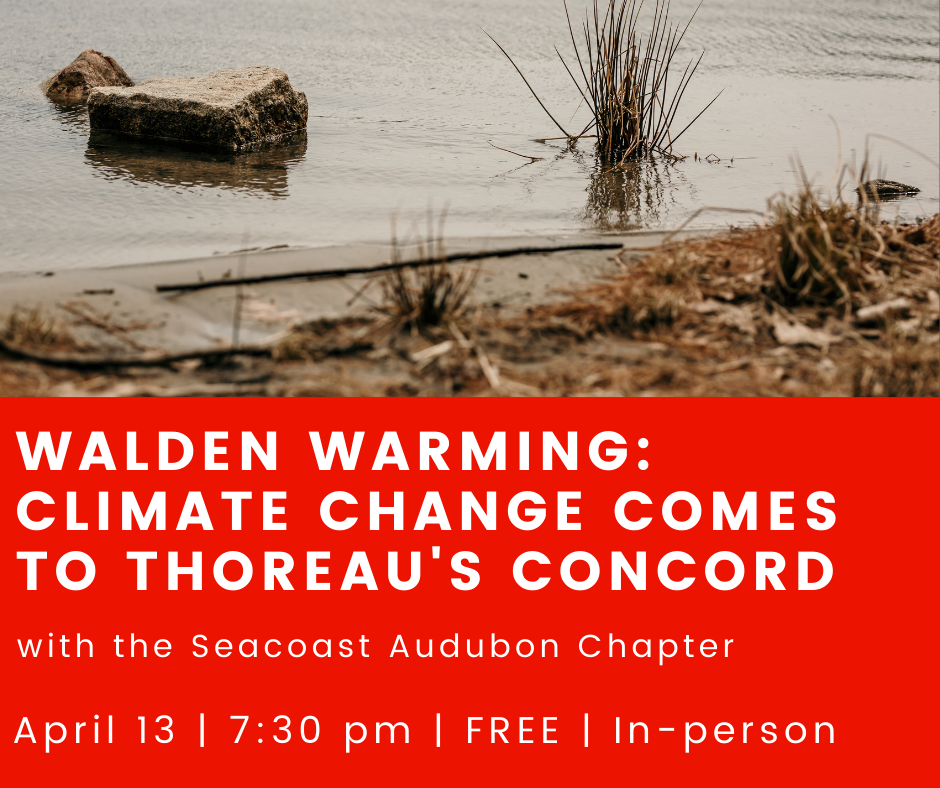AARP Hearing Center

This in-person program is presented by the Seacoast Chapter of the NH Audubon.
Henry David Thoreau was a climate change scientist!
For the past 18 years, presenter Professor Richard Primack and his team have been using Thoreau's records from the 1850s and other Massachusetts data sources to document the earlier flowering and leafing out times of plants, the earlier flight times of butterflies and the more variable response of migratory birds. Plants in Concord are also changing in abundance due to a warming climate. This work is now being extended to the neglected autumn season. What would Thoreau tell us to do about global warming if he were alive today?
Join the Seacoast Audubon Chapter on Wednesday, April 13 at 7:30 pm for this program at the Seacoast Science Center, Odiorne Point State Park, 570 Ocean Boulevard, Rye, NH.
About the Presenter: Richard Primack is a Professor at Boston University with a specialization in plant ecology and conservation. He has written four widely used conservation biology textbooks; local co-authors helped to produce 38 translations with local examples. He was Editor-in-Chief of the journal Biological Conservation and served as President of the Association for Tropical Biology and Conservation. His research has been featured in the New York Times, the Boston Globe, and Nation Geographic, and he is often interviewed on National Public Radio. Primack shares his research in the popular book Walden Warming: Climate Change Comes to Thoreau's Woods.
This in-person program is FREE. No registration is required. For more info about upcoming programs, please visit: https://www.seacoastchapter.org/programs.
If you have any questions, please contact: Dan Hubbard: 603.332.4093 or danielhubbard@peoplepc.com
Please note, this is not an AARP event. Any information you provide to the host organization will be governed by its privacy policy.































































